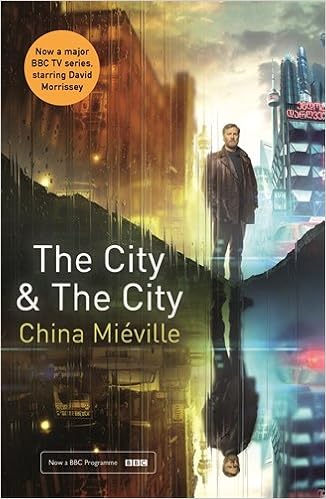 |
| Amazon link |
This penultimate episode was better. The series still feels more constricted than necessary (should have been six episodes!) but we're beginning to see the wood for the trees.
About episode 2 I said, " Borlú is a grumpy, slightly sleazy ESTJ headmaster who could never have pulled his liberal, idealistic ENFJ wife." In this episode the dynamics of a failing marriage are more clearly portrayed: Borlú in his mundane sensor way worships his fey and fragile wife; she, on the other hand, sees him as a clodhopping bear whose unimaginative stolidity imprisons her free spirit.
Could it really have lasted two years?
Isabel Briggs Myers noted ("Gifts Differing") that as you ascend the social scale the proportion of Idealists/liberals (NFs) and Rationals/intellectuals (NTs) increases. This is plainly due to the IQ correlation with N: a capacity for abstraction is an entry ticket for elite participation with heart-on-sleeve Idealism more prevalent in the arts and media.
Watching ESTJ Borlú blundering his way around as lead character is therefore a bit of a novelty. But the fact that many viewers may find him as irritating as does his wife Katrynia doesn't mean that he's not well acted, or that his personality doesn't fit the role. So I stand corrected, a little.
Borlú's Ul Qoman counterpart, Senior Detective Dhatt, (a more sympathetic figure) was revealed last night to be in a lesbian relationship with a less 'policey' partner - but both are SJs so their prospects are good.
So where do we stand now? The evil American corporation has come into the picture, spouting its vacuous homilies about 'learning from the noble inhabitants of the third world' (very well done, the very lightest touch) while Borlú's Guardian protective instinct for 'his people' has finally and irrevocably clashed with his Guardian respect for the principle that you shall not Breach.
The denouement is next Friday.
---
Update: Sunday 29th April 2018.
The final episode was perhaps the best. The banal, sleazy truth underlying Orciny was unveiled while the denouement flirted with magical realism. I liked it - I understand the sensors switched off in droves.
Throughout the episodes I understood the intellectual salience of 'unseeing' those social realities which power-brokers have made forbidden. What I didn't appreciate enough was the lure of Orciny, the fabulous secret-city soaring above the mundane.
The role of Borlú's wife, Katrynia was to capture that idealistic and utopian longing .. and then to follow the trajectory of Orciny into the abyss. The actress Lara Pulver didn't carry that arc too well: too self-possessed, not quite enough fragility.
No comments:
Post a Comment
Comments are moderated. Keep it polite and no gratuitous links to your business website - we're not a billboard here.